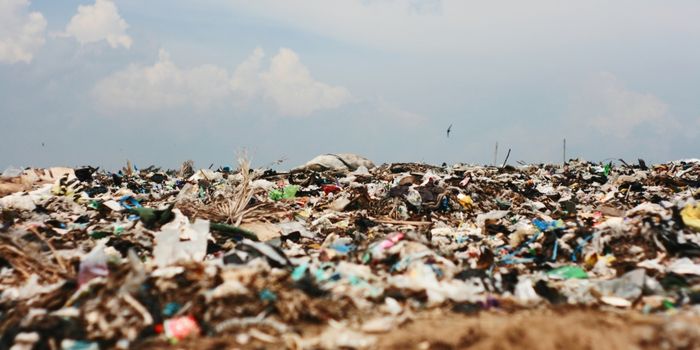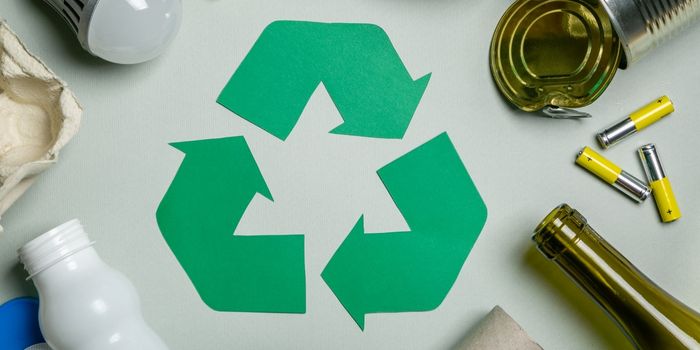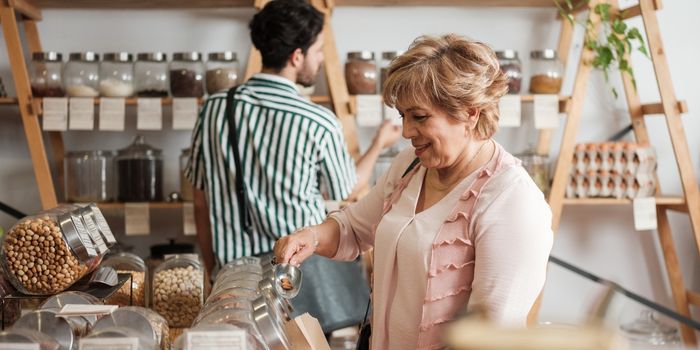Zero Waste is a movement that is gaining traction all over the world. It is a way of living that minimizes waste and promotes sustainability. In this blog post, we will discuss what Zero Waste is, and how you can get started on your own Zero Waste journey!
So, what is Zero Waste? Zero Waste is a philosophy that encourages the redesign of our systems and products to prevent waste. This means reducing our reliance on single-use items, and instead opting for reusable or recyclable alternatives. It also means composting organic materials, rather than sending them to landfill.
Zero Waste living can seem daunting at first, but it doesn’t have to be! There are many small changes you can make in your everyday life that will help you reduce your waste. For example, you can start carrying a reusable water bottle with you and avoid buying bottled water. You can also bring your own shopping bags to the grocery store, and say no to plastic bags.
Making these small changes can seem like a drop in the bucket, but if we all make an effort to reduce our waste, it will have a big impact! So let’s all do our part to help make the world a little bit cleaner and greener. Zero Waste living is the way of the future!
How to Get Started With Zero Waste Lifestyle?

Now that we’ve discussed what Zero Waste is, let’s talk about how you can get started on your own Zero Waste journey! The best place to start is by evaluating your current wastefulness. Take a look at your trash can, and see what sorts of things you’re throwing away. Are there items in there that could be recycled or reused? If so, make a commitment to recycle or reuse those items from now on.
You can also take a look at the products you use on a daily basis, and see if there are any sustainable alternatives. For example, instead of using paper towels, you could use reusable cloths. Or instead of using disposable cups, you could invest in a reusable water bottle or coffee mug.
Every little bit counts when it comes to reducing waste! So start making some changes in your own life, and see how easy and rewarding Zero Waste living can be. You’ll be amazed at how much of a difference you can make!
Better Instead Of More

One of the main tenants of Zero Waste living is to focus on quality, not quantity. This means buying fewer things, and instead investing in high-quality items that will last. For example, it’s better to buy one nice pair of shoes that will last you years, instead of five cheap pairs of shoes that will fall apart after a few months.
The same goes for the food you eat, and the products you use in your home. It’s better to buy items that are made from sustainable materials, and that will have a minimal impact on the environment. Yes, these items may cost a bit more upfront, but they’ll save you money in the long run because you won’t have to keep replacing them.
So, if you’re serious about reducing your waste, start by focusing on quality instead of quantity. It’s a simple change that can make a big difference!
Why Zero Waste Matters?

The world is facing a waste crisis. Every day, we produce more and more garbage, and it’s taking a toll on our environment. Landfills are overflowing, and plastic pollution is reaching epidemic levels. Something needs to be done!
That’s where Zero Waste comes in. By reducing our reliance on single-use items, and making small changes in our everyday lives, we can make a big difference. Zero Waste living is not only good for the environment, but it’s also good for our wallets! So let’s all do our part to help make the world a little bit cleaner and greener. Zero Waste is the way of the future!
Zero Waste Pros:
There are many benefits to living a Zero Waste lifestyle. Here are just a few of the advantages:
- Reduced reliance on single-use items: One of the biggest benefits of Zero Waste living is that it reduces our reliance on single-use items. This means less waste going to landfill, and fewer resources being used overall.
- Increased sustainability: Zero Waste living is also more sustainable than traditional lifestyles. By opting for reusable or recyclable alternatives, we are using resources more efficiently, and reducing our impact on the environment.
- More money in your pocket: Zero Waste living can also save you money! By investing in reusable items, and avoiding disposable products, you’ll save money in the long run.
Zero Waste Cons:
Of course, there are also some challenges associated with Zero Waste living. Here are a few of the potential drawbacks:
- It can be time-consuming: Making sustainable choices can sometimes take more time than just grabbing the first thing off the shelf. You may need to do some research to find the best eco-friendly option, and this can take time.
- It requires change: Zero Waste living also requires some changes in your daily routine. You may need to start carrying a reusable water bottle with you or bring your own shopping bags to the grocery store. These changes can be challenging at first, but they’ll become second nature before you know it!
- It’s not always possible: There are some situations where Zero Waste living is just not possible. For example, if you’re traveling, it may be difficult to find sustainable alternatives to single-use items. In these cases, it’s important to do the best you can, and not beat yourself up if you can’t manage a perfect Zero Waste lifestyle.
Zero Waste is a great way to help the environment, and it has many other benefits as well. But it’s important to remember that Zero Waste living is not always possible, and that’s okay! Do the best you can, and know that every little bit helps. We can all make a difference!
Is a Zero-Waste Lifestyle Actually Possible?

The short answer is yes – a Zero Waste lifestyle is definitely possible! But it’s not always easy, and it requires some changes in your daily routine. We recommend starting slowly, and making small changes until they become second nature. You’ll be surprised at how easy it is to live a Zero Waste lifestyle once you get started!
If you’re interested in learning more about Zero Waste living, check out our other blog posts, or contact us today. We would be happy to answer any of your questions!
When Did Zero Waste Movement Start?

The modern Zero Waste movement started in the early 2000s, although the concept of waste reduction has been around for centuries. The term “Zero Waste” was coined by architect William McDonough and chemist Michael Braungart, in their 2002 book Cradle to Cradle: Remaking the Way We Make Things. In the book, they argued that waste is a design flaw and that all products should be designed for reuse or recycling.
The Zero Waste movement has gained traction in recent years, as more people become aware of the environmental impact of waste. Celebrities like actress Emma Watson and model Gisele Bundchen have spoken out about their commitment to Zero Waste living, and a growing number of cities and businesses are adopting Zero Waste policies.
6 Ways To Make Transition To Zero Waste Living As Smooth As Possible

Making the transition to Zero Waste living can be daunting, but it doesn’t have to be! Here are a few tips to make the transition as smooth as possible:
- Start slowly: Making big changes all at once can be overwhelming. Start by making small changes in your daily routine, and build up from there.
- Do your research: There are a lot of sustainable alternatives to disposable products. Do some research to find the best options for you and your lifestyle.
- Invest in reusable items: Buying reusable items like water bottles and shopping bags can help reduce waste and save you money in the long run.
- Be prepared: Planning ahead can help you avoid situations where you have to choose between a sustainable option and a disposable one. For example, if you know you’ll be traveling, pack a reusable water bottle and some snacks so you don’t have to buy them on the go.
- Give yourself grace: Zero Waste living is not always possible, and that’s okay! Do the best you can, and know that every little bit helps.
- Find like-minded people: There are a growing number of people interested in Zero Waste living. Find a community of like-minded individuals, and you’ll have support and encouragement on your journey.
Making the switch to a Zero Waste lifestyle is possible, but it takes some effort. By following these tips, you can make the transition as smooth as possible. And remember, every little bit helps!
Zero Waste Living — Final Thoughts

The Zero Waste movement is a great way to help the environment, and it has many other benefits as well. But it’s important to remember that Zero Waste living is not always possible, and that’s okay! Do the best you can, and know that every little bit helps. We can all make a difference!
Do you have any tips for living a Zero Waste lifestyle? Share them in the comments below! And if you’re interested in learning more about Zero Waste living, check out our other blog posts, or contact us today. We would be happy to answer any of your questions!
We hope this post has inspired you to start thinking about ways to reduce your waste. Remember, every little bit helps! Thanks for reading!
References:
– Cradle to Cradle: Remaking the Way We Make Things (2002), by William McDonough and Michael Braungart
– Emma Watson’s Best Zero Waste Quotes (2019), by Rachel Cernansky
– Gisele Bündchen’s Most Inspiring Quotes on Sustainability (2019), by Rachel Cernansky
– The Top Ten Cities Committed to Zero Waste Living (2019), by Jillian Michaels
– These 14 Companies Have Achieved ‘Zero Waste’ Status—Here’s How They Did It (2018), by Adele Peters
– How to Go Zero Waste (2019), by Bea Johnson
– What is the ‘Zero Waste’ Movement? (2018), by Lauren Singer
– FAQs about Going Zero Waste (2019), by TerraCycle Europe Ltd.

Iryna wants to make this world a better, greener place with less waste. Her mission is to protect the planet from plastic pollution by bringing awareness to this global crisis through her website. Send her an email to learn more about her mission and how we can help!



